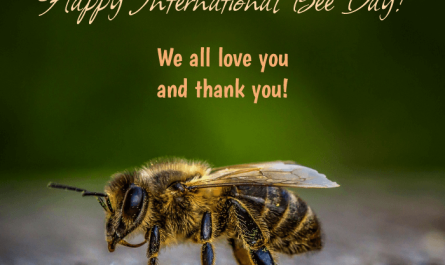On hot days like these, it seems that whatever you do to cool yourself a little, doesn’t work. The air conditioning is on and you’re good, as long as you’re inside. But you won’t stay inside all summer long.
We resort to ice-cream and cold drinks but the effect last only while consuming them. Maybe 10 minutes after. Another ice-cream is going to swell your tonsils and give you laryngitis or other nasty throat problems.
Here is one solution. Eat and drink cooling products. Stay hydrated and take advantage of the sun. A good level of Vitamin D3 in your body helps it to adapt to external conditions, either hot or cold.
What are cooling products?
Food and drinks that cool down the body temperature. Which don’t have to be taken out of the refrigerator. You can tell which they are if you remember the rule of 3 tastes:
– sweet, bitter and astringent – have cooling actions;
– salty, sour and pungent – have warming actions.
Astringent: dry and light, causing you to pucker your mouth. E.g.: cranberries, unripe bananas, pomegranates, green beans, legumes, turnips, and artichokes.
Pungent: hot and spicy. Eg: spicy foods, garlic, onions, ginger, and radishes.
Here are some cooling food that you have definitely consumed during summer, but didn’t know they had such effect on you. Though, unconsciously, you craved for more.
– watermelon, cucumbers, celery, tomatoes, zucchini, strawberries, cherries and other berries, pineapple, papaya, honeydew, coconut water and milk, goat’s milk and cheese, kefir and yogurt, rice, quinoa, spelt, barley, oats, almonds, raw honey and lots of teas and spices.
Cooling teas and essential oils:
– Mint and its varieties: spearmint, peppermint, and pennyroyal. It has with antimicrobial, anti-inflammatory and nerve-calming effects.
– Lavender – is used in anxiety, depression, insomnia and headaches. You can put it in your beverages, (lemonade included), apply it topically (on foreheads and wrists) or diffuse it.
– Coriander (cilantro) – lowers sugar blood (study) and has antioxidant, anticancer and neuroprotective effects (study).
– Rose – has anti-inflammatory properties. Use it as rose water or as teas. Or put it in a spritzer to spray it on your body for instant relief . It also eases pain, soothe burns, reduce depression and improve sexual dysfunction (study). Arab people know well all the properties of this beautiful plant.

– Chickweed (Stellaria media)
A review from 2020 says it has cooling effects and helps in: obesity, diabetes, skin, infections, inflammation, gastric ulcers, stomach cramps, pain, anxiety. You can use it as cream or oil that can be added in your beverages, teas, or applied directly on skin.
– Chamomile;
– Dill;
– Lemon verbena (Aloysia citrodora);
– Cardamom;
– Hibiscus;
– Lemongrass;
– Goldenseal;
– Catnip;
– Aloe.
They are all equally effective, try which one suits you better.
How to cool yourself on hot days
And as an alternative to ice-cream, fizzy drinks or beer, try a lemonade. If you want to upgrade it a little more, add some mint or lavender, fresh or as essential oil. You only need a drop or two.
Use fresh and raw honey, as it is the best! It does its job whatever the floral source. Honey is fresh if it is harvested in that year. You can tell that by checking the expiration date. Of course in reality honey doesn’t spoil and shouldn’t have an expiration date, but the mainstream norms force producers to add a 2 year expiration date. So, read this expiration date, do the math and you’ll know if you have fresh honey or not.
Honey is a therapeutic ingredient as well. It may not contain significant amounts of minerals, but they are essential to our body. This helps us in replenish the minerals we lose by transpiration.
Staying hydrated is the most essential in hot days. This means plenty of water, but sometimes even though we do drink lots of it, we still are dehydrated. It’s because we sweat a lot, thus losing the essential minerals of our body. You may have heard of them as electrolytes.
Signs of an electrolyte imbalance include: irregular heartbeat, lightheadedness, confusion, fatigue, muscle weakness, headaches, numbness, stomach pain, convulsions, constipation or frequent urination.
What are electrolytes?
Electrolytes are a type of particle that carries either a positive or negative charge when dissolved in water and are involved in a regulating fluid balance, promoting nerve and muscle function, supporting heart health, improving bone strength, maintaining brain health. They are also present in blood, sweat and urine.

And what is the first thing a doctor does when you end up in an ER room? Without even waiting for test results? Put you on intravenous physiological serum. Hydrates you with electrolytes.
So, try to drink lots of water and teas. Other beverages won’t hydrate you. And if you also sweat a lot, vomit or have diarrhea and don’t want to end up in an ER room with a needle in your vein, take supplemental electrolytes first. They are easy to find. Either as powder or as tables. Just put them in water and that’s it. You’ll need more according to your condition, try it and you’ll see for yourself.
Lavender lemonade is a delicious, refreshing beverage. Use a bit of fresh or dried lavender. Of course you need dried, organic culinary lavender, but can anyone have the guaranty of it being exactly like that? It is better to use essential oil, from the source you usually buy essential oils (make sure it’s a medical grade, not for aromatherapy). One or two drops in a glass of lemonade will do the trick!
Remember!
Ice cream, may provide temporary psychological relief, but it doesn’t actually do anything to lower your overall body temperature. Maybe a little, as it is sweet.
References:
What are electrolytes?







